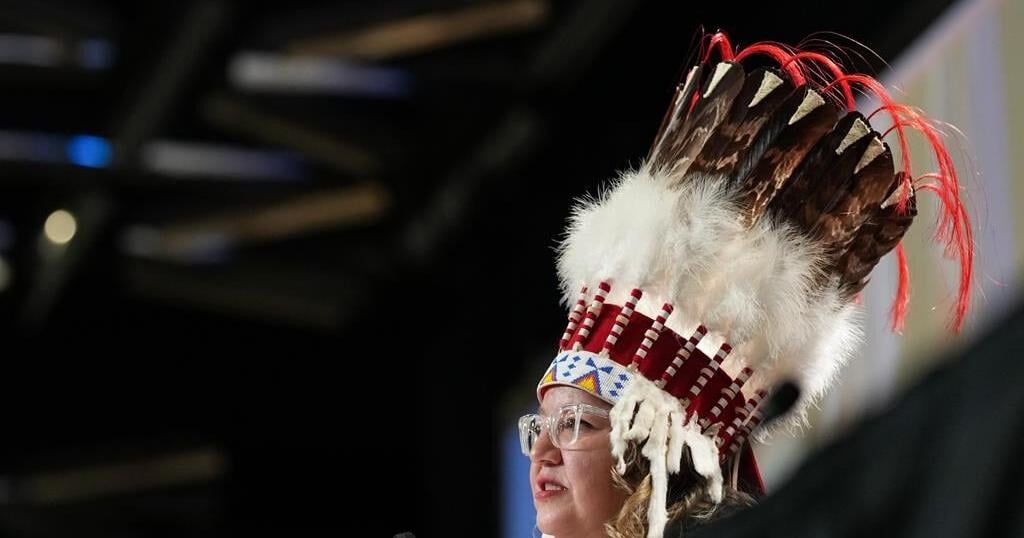OTTAWA – Canada isn’t ruling out expelling additional diplomats from India, Foreign Affairs Minister Mélanie Joly suggested Friday following bombshell allegations that Indian diplomats in Toronto, Ottawa and Vancouver were involved in state-sponsored violence targeting Canadian citizens.
Canada expelled the Indian high commissioner and five other diplomats on Monday and when asked at a news conference in Montreal Friday if any more expulsions would follow Joly did not say no.
“They’re clearly on notice,” she said.
The minister said that Canada will not tolerate any foreign diplomats that put the lives of Canadians at risk.
A year ago Prime Minister Justin Trudeau said Canada had clear evidence that Indian agents were connected to the murder of Sikh leader Hardeep Singh Nijjar in British Columbia in June 2023. The allegations suggest India is trying to snuff out a movement to create an independent Sikh state in India known as Khalistan.
On Oct. 14, RCMP Commissioner Mike Duheme rocked the diplomatic relationship further, saying the national police force had launched a special investigative unit last February to investigate multiple cases of extortion, coercion and violence, including murder, linked to agents of the Indian government.
In more than a dozen cases, Canadian citizens were warned about threats to their personal safety and Duheme said the national police force was speaking out to try and disrupt what it deemed a serious threat to public safety.
The six diplomats expelled are persons of interest in the cases, with allegations that diplomats used their position to collect information on Canadians in the pro-Khalistan movement and then pass that on to criminal gangs who targeted the individuals directly.
India has denied the allegations and expelled six Canadian diplomats from New Delhi in return.
Joly said Friday the allegations were extraordinary in Canada.
“That level of transnational repression cannot happen on Canadian soil,” she said. “We’ve seen it elsewhere in Europe, Russia has done that in Germany and the U.K., but we needed to stand firm on this issue.”
The allegations will be studied in more detail by the House of Commons national security committee following a vote by the committee Friday. Joly and Duheme will both be asked to appear, as will Public Safety Minister Dominic LeBlanc
NDP MP Alistair MacGregor, who put forward the motion to launch the study, said the fact the RCMP came out with such “explosive revelations” underscores how serious the situation is.
“The RCMP made a point that they were doing this because some individuals in Canada had their lives directly in danger and the threat reached such a level they felt compelled to ignore the traditional way of going through the judicial process and make these accusations public,” he said.
Canada’s allegations were followed Thursday by charges announced by the U.S. Justice Department against an Indian government employee who is accused in an alleged foiled plot to kill a Sikh separatist leader living in New York City.
U.S. authorities say Vikash Yadav directed the New York plot from India. He faces murder-for-hire charges in a planned killing that prosecutors have previously said was meant to precede a string of other politically motivated murders in the United States and Canada.
The Indian government didn’t immediately provide comment on the U.S. charge.
American-Canadian lawyer Gurpatwant Singh Pannun, a lawyer and dual Canadian and U.S. citizen, said in a statement that he was the target of the alleged murder plot in New York. He said he was targeted because he is a lawyer for Sikhs for Justice and was helping to organize votes in a non-binding referendum on the creation of an independent Sikh state.
Nijjar helped organize a similar referendum in B.C. prior to his death.
The House committee Friday also voted to call Brampton Mayor Patrick Brown to testify, as well as other candidates from the 2022 Conservative leadership contest. A report released in June by the National Security and Intelligence Committee of Parliamentarians (NSICOP) contains a redacted paragraph that details alleged Indian interference in a Conservative leadership contest. A specific year is not mentioned.
The Conservatives have said they have been given no information about any such interference.
The committee is also now considering a second NDP motion calling for all party leaders to apply for a top-secret security clearance within 30 days, along with a Conservative amendment to demand Prime Minister Justin Trudeau release the names of parliamentarians listed in top-secret documents as being engaged in or at-risk of foreign interference.
At the foreign interference inquiry this week Trudeau said Conservative Leader Pierre Poilievre refused to get the clearance that would allow him to access the names of Conservatives from those documents, while Poilievre accused Trudeau of lying and demanded he make all the names public.
Trudeau acknowledged the documents include the names of members of other parties, including the Liberals, but said if Poilievre doesn’t get the clearance that is needed to know who is at risk he can’t take any steps to prevent or limit the impact.
Manitoba Conservative MP Raquel Dancho told the committee that Poilievre getting a briefing would be a “gag order” against criticizing the government on foreign interference.
“We can put this to bed, it’s rapidly devolving into some McCarthy witch-hunt as a result of the prime minister’s actions and we can clear this up today by releasing the names,” Dancho said.
This report by The Canadian Press was first published Oct. 18, 2024.
































